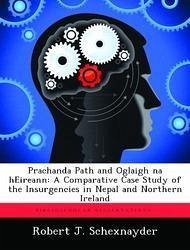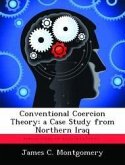Wars in Iraq and Afghanistan, and the Global War on Terrorism have raised the interest of the United States Government in insurgencies and counterinsurgencies. There are many different types and classifications of insurgencies. Two major types are leftist, Maoist style insurgencies and right-wing, nationalist/religious style insurgencies. As the right-wing, nationalist/religious style insurgencies continue to grow and gain momentum, the question becomes, "Are right-wing, nationalist/religious style insurgencies better structured and equipped to succeed than the leftist style insurgencies?" In order to answer this question, this monograph will analyze the structure, tactical levels of discipline, operational focus, and insurgent strategies of two modern insurgencies, each representing a right-wing, nationalist/religious style or left-wing, Maoist style movement: the Irish Republican Movement in Northern Ireland and the Maoist Rebels in Nepal. The Communist Party of Nepal (Maoist) (CPN(M)) initiated its insurgency in 1996, when it started a "people's war" against the government of Nepal. The CPN(M)'s main goals was to establish a communist government in Nepal, remove the monarchial system, and remove the caste system from the country. The CPN(M) is an egalitarian type of insurgency that uses Mao Tse-Tung's Protracted People's War strategy. However, they have modified the strategy over the past few years to incorporate urban terrorist operations. This new strategy is called the Prachanda Path, named after the leader of the CPN(M)--Prachanda. The insurgents are organized around three groups: a political party, a military wing, and other groups (called the United Front). They rely on criminal activity and their diaspora for financing their operations. Operationally, they conduct activities from geographical base areas, have a well-educated leadership, poor logistics, and use both passive and coercive recruitment techniques. At the tactical level, the CPN(M) conduct full
Bitte wählen Sie Ihr Anliegen aus.
Rechnungen
Retourenschein anfordern
Bestellstatus
Storno









